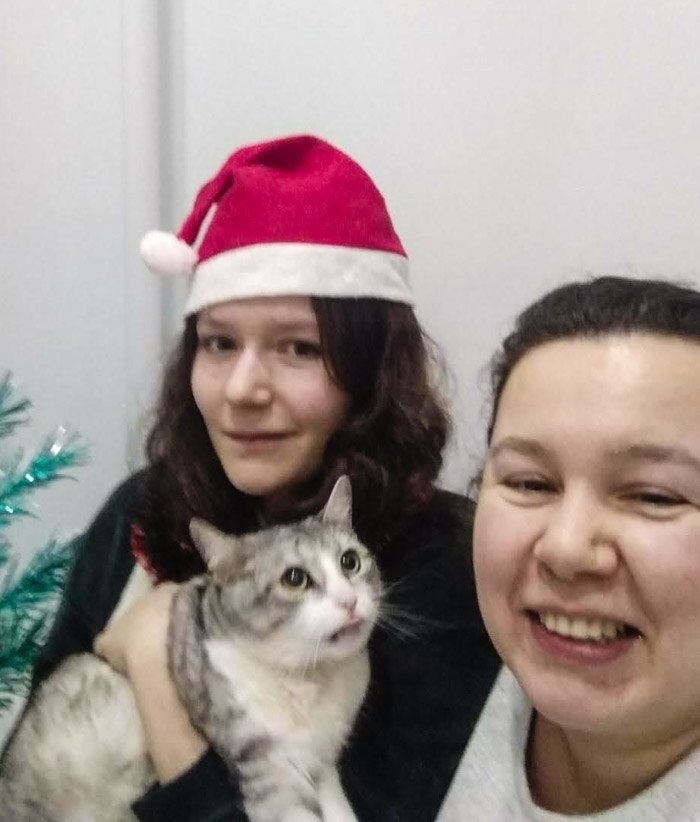A cozy town
In recent years, Bucha has been a rapidly developing city. Just like Irpin. We have a large city park and a forest. New houses were built, shops opened. Even a brand-new McDonald's was opened, it was destroyed on the third day of the war. A cozy town.
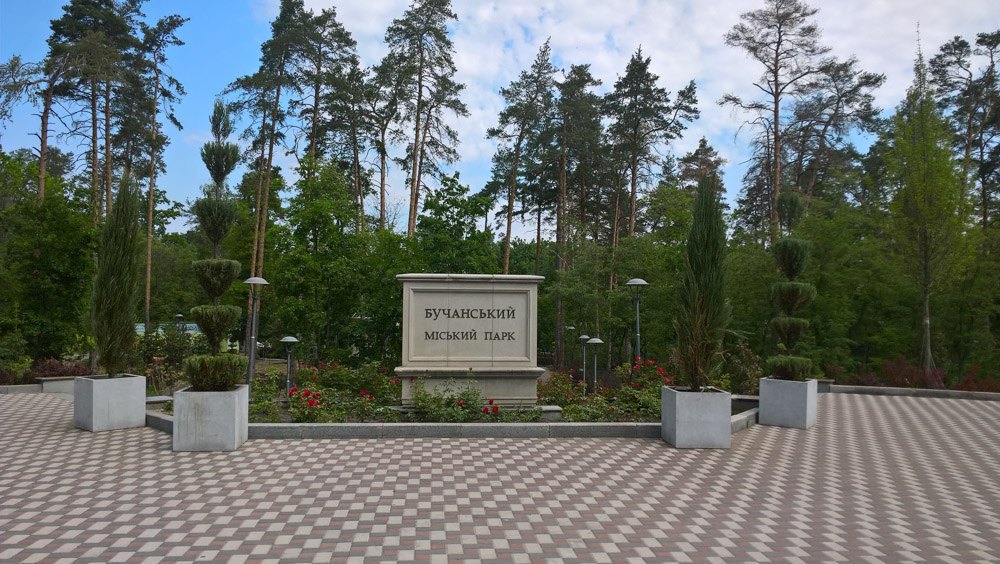
A few days before February 24, dad was worried that something [bad] might start. My parents thought that maybe we should move to the West, go to Poland. On the night of February 23-24, my mom did not sleep and was looking up information on how likely it was for the war to start. Then in the morning, she looked through a window and saw a flying rocket followed by a flash.
Mom woke us up around five in the morning and told us to pack our "emergency kits". Yes, we belived in an invasion in Bucha was so little that, apart from plans, we had nothing, not even things packed. Bucha is not a kind of place where battles can take place, we simply forgot that Gostomel has an airport. We packed some stuff and moved to another apartment. That building seemed more reliable.
“In the first few days, we just sat in the corridors, trembled, and looked out of the windows from time to time. We didn’t go down to the basement. After the electricity went off, the days became monotonous. We would wake up at six in the morning. It was cold, we didn’t feel like getting out from under the blanket, and the cats were still asleep. We had breakfast around seven”
On the first night of the war, a lot of people left in their cars. The roads were supposedly still free at that time. On the third day, a large column of russian equipment was destroyed on Vokzalna Street near the Giraffe shopping center. This is the main street between Bucha and Irpin, it is about five hundred meters away from us. The explosions were terrible. People were terrified and before the official evacuation began, they fled across the bridge in Romanivka. Bridges were already blown up at that time, and many said that people were simply being shot on the way.
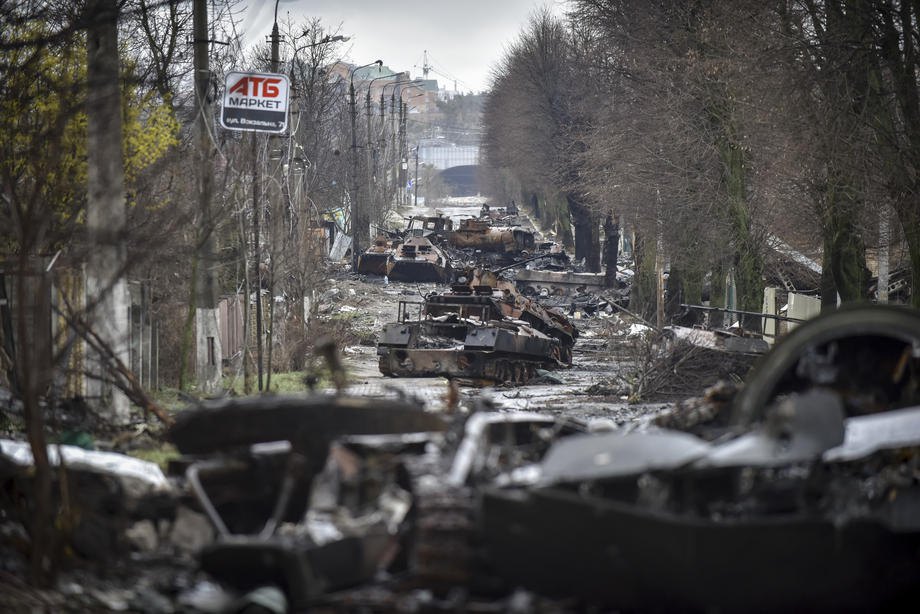
I don't know if the russians had any curfew, they didn't announce anything about it, but the locals said they did. The locals also said that white armbands should be worn on the sleeves. Dad wore a white armband over his shoulder, and my mom and I put on white towels. That’s how we would leave the house around nine in the morning and go to gather news.
A lot of people fled. In the last week, there was no one left in the neighboring building with about 60 apartments. In our building, only we, one guy, and two families stayed.
After the water and gas were turned off, we started going to my grandmother's house. She also lives in Bucha, but in a private house, so she has a yard, firewood, a stove. For about two weeks we went to her house to cook food. We poured tea into thermoses and went home. In the morning, the tea would still be warm. As there was no electricity, we had to charge our phones from a man who had rechargable batteries. He let us do it for free.
People who stayed in high-rise buildings took water from the pump, but it stopped working very soon after the water supply was turned off, and then froze. So everyone started to go to the private houses to the wells. The stores have been closed since the third day. First, they were looted by the russians, and then the locals began to come and take food. I wou;dnt dare to call it looting. How else would one survive without supplies and humanitarian aid? People cooked food above the garbage bins in the courtyards.They also found some pallets in warehouses, turned them into little fences. Since it was impossible to cook without gas, they cut down the trees in the yards for firewood.
Every day we would take the same route to my grandmother\'s house. We’d spend most of the day there, because as soon as you light the stove and cook food the day is over. We’d take water from the well. It’s not like we had food supplies, but my mom always used to buy large amounts of food. We had food for about a month.
At about four o'clock in the afternoon, we would leave my grandmother's house. By dusk, I’d manage to read a book. Sometimes in the morning, but usually in the evening, I would go up the tenth floor of the house, where I could still get some connection, and called my relatives. Sometimes I managed to have an internet connection. And after seven, we would go to bed. Because, first of all, it was necessary to adhere to the blackout, and then, there is not much to do with a candle in the evening.
Every day was like that.
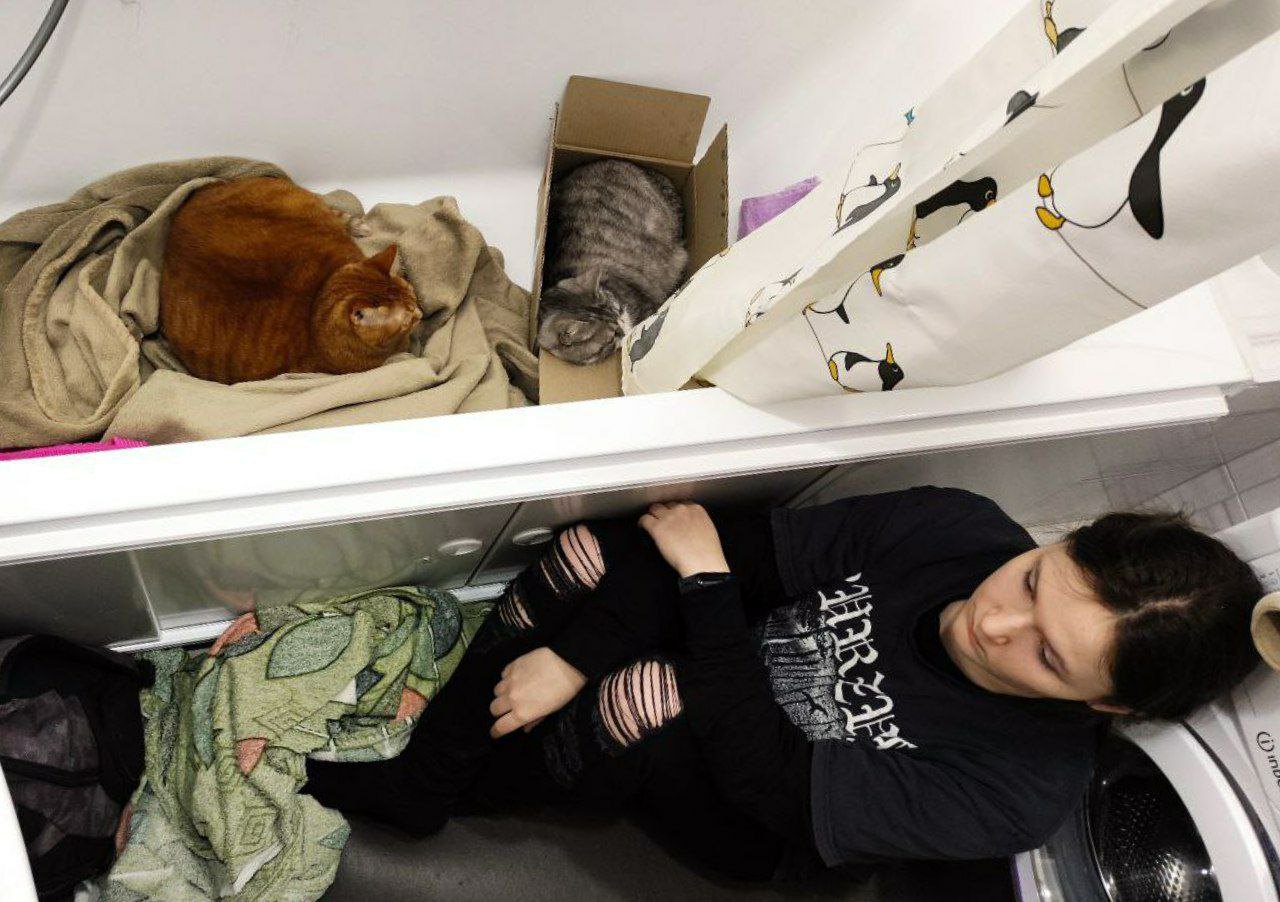
Russians
We first saw the russian military when they drove into the courtyard of our house in a tank. Through the lawns, trees were felled. We were in the hallway and didn't really look out. Then the locals said that, most likely, there was a wounded man among the military, because they were looking for a pharmacy. And we have a cross hanging on a pole next to it — the sign of the pharmacy. We heard glass breaking there, some screams. They grabbed something for themselves and drove off. This happened just as explosions were heard at Vokzalna street.
"At that time, either some debris or shells also flew into neighboring houses. There was a shelter, a lot of people were sitting in the school, and the russian military also came to them.
Near our house, there is a residential complex "Сontinent". A week after the start of the war, the Russians were standing right in its yard. They robbed apartments, and the house itself was badly damaged. We heard shooting from there, apparently, at Gostomel. There they organized a certain headquarters for themselves. About two weeks ago, when there were peak battles, a column of eight units of all sorts of russian armored vehicles was being rebuilt in our yard.
Every time new equipment arrived, New Russians came and started robbing already robbed shops and apartments again. Once they opened the freezer and pulled out ice cream, which has been thawed for a month. They just threw it on the street. These days, we are already used to tanks, shots fired, and the fact that Russian military personnel can walk somewhere. You sit here, drink tea, look: a-ha, one tank went, back and forth, a-ha, the second one.
We didn't go to my grandmother's house for a couple of days, because the Russians actively started climbing in our yard. Once people, as usual, lit firewood in the yard to prepare food. The russian military approached them and ordered them to hand over their phones. They examined the phones and burned them. Then I found out that one of the militaries went to Instagram to visit one of our guys and saw that he had friends in territorial defense. Another man of Azerbaijani origin was interrogated and asked about a radio transmitter. We all knew that man, he is such a kind person, he was very scared.
“In the end, the russians took the men to the basement, put them against the wall, and said they had booby-trapped the entrance. Therefore, if they try to get out, a mine will explode and the whole house with all the people will fly into the air.”
About five hours later, a neighbor came and released them. There was no mine — the Russians threw boards at the entrance to the basement and tied the bottle to the door so that when they opened, the bottle would fall loudly and people would get scared. Such perverse humor.
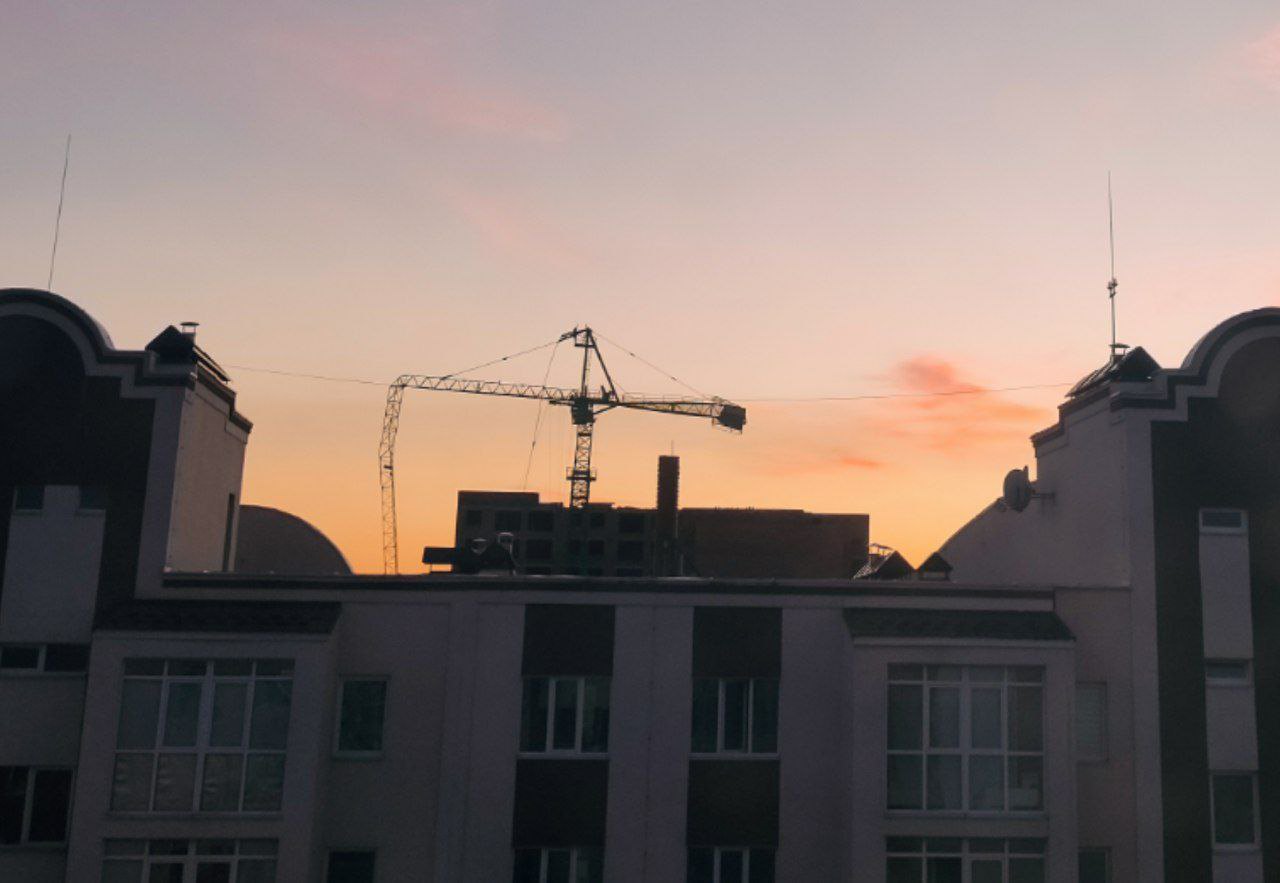
Near my grandmother, they also rode, as I understand it, either to Irpin or to Gostomel. I don't remember exactly when we first contacted the russian military. We were at my grandmother's house, and about 15 Russians were driving down the street in an armored car and searching every house. There are private houses and many people have left. Where they were not opened, shots were heard, most likely, they shot at Locks, searched the house, and walked on.
When they came to us, they said they should inspect the House. About five people came into the yard, and three more went around the House. They looked around something, didn't even go to the third floor, they weren't very interested. They didn't have any special questions about our phones. And so they left.
On the day my mother was killed, March 24, there was another search. We have the second one, and our neighbors have the third one. The russians asked if we had been searched, we said that there were several, and they said that it was necessary again. These people were already looking around the house more carefully and were already looking for phones. There was a young commander with them, we had not seen him before, and he tried to speak in a human way. I don't sympathize with them, he just spoke normally, saying that "the search is for our safety." They were looking for territorial defense, a uniform of the UAF, they were looking for Bandera. Crazy.
Neighbors who left asked their grandmother to take care of their house. She gave the Russian military the keys so that the doors wouldn't be smashed. They saw surveillance cameras there, started looking for a computer, a server, and cut all the cables they had. They didn't steal anything. They looked around the attic, looked into every closet, but they didn't interrupt our things.
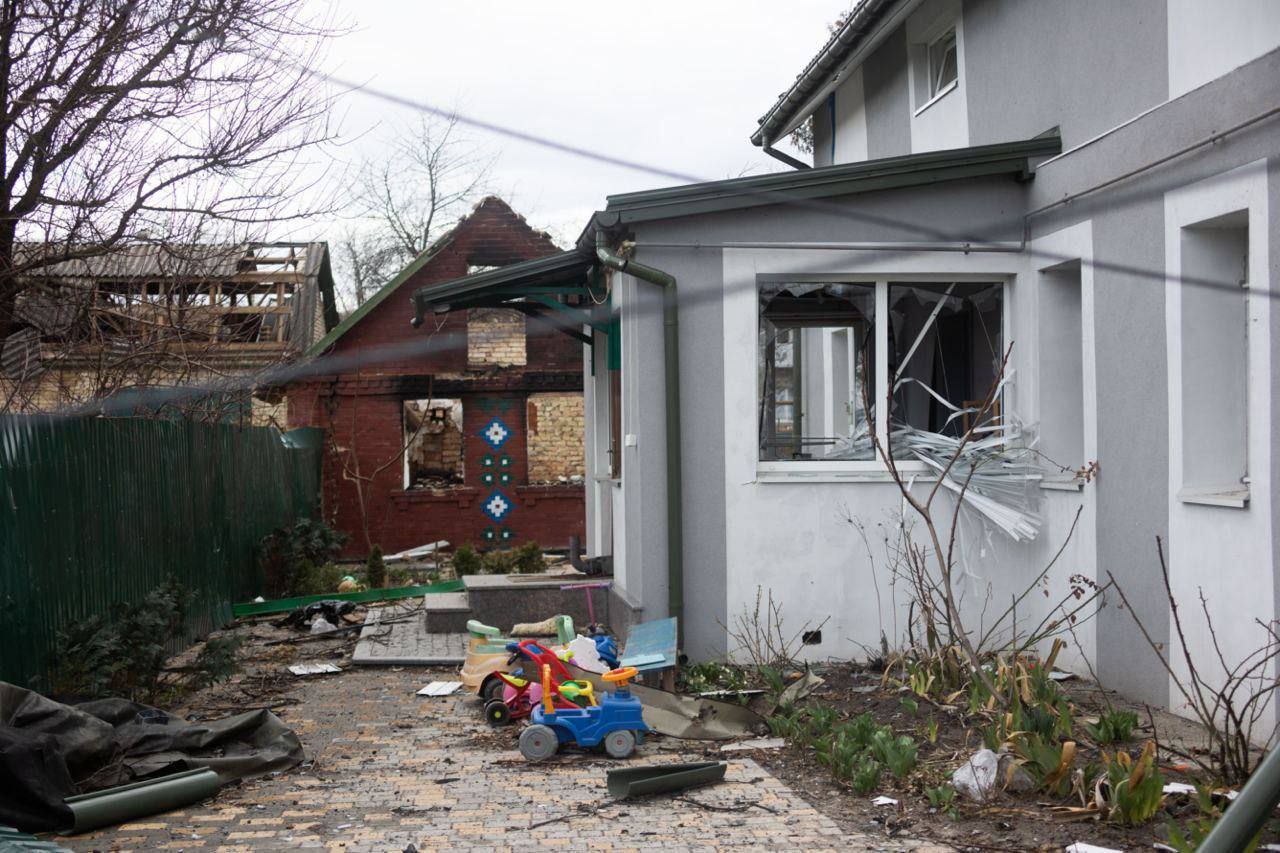
Later they searched our house. On that day, they wanted to take their father with them, also "for safety's sake." We started asking, why, well, how can one civilian guarantee their safety? I think that because I started asking not to pick up my dad, this type of "cultured" commander contacted someone on the radio and attached how many people we are, what the address is, whether there are phones and that there is a child here. They probably thought I was about fourteen. So after the search, they just left.
Mother
My mother didn't work after I was born, she invested everything in me. But she was an active person, engaged in volunteering. After 2014, she wove camouflage nets for the Ukrainian army with my friends. She constantly monitored the situation with illegal constduction in Bucha. She always knew the situation in the city. Sometimes she took me to some charity events that were organized to help the dog shelter in Borodyanka. Now there is also a tragedy there — a lot of dogs died.
“We knew that we could evacuate from the town, but we didn\'t think that the war could have started like that, right away. First, we thought about buying a house somewhere in the western Ukraine. And when it all had started, my mother was the first who did not want to go from Bucha. She said that she had been born there, that it was her place, her mother was there. She could not imagine going somewhere?”
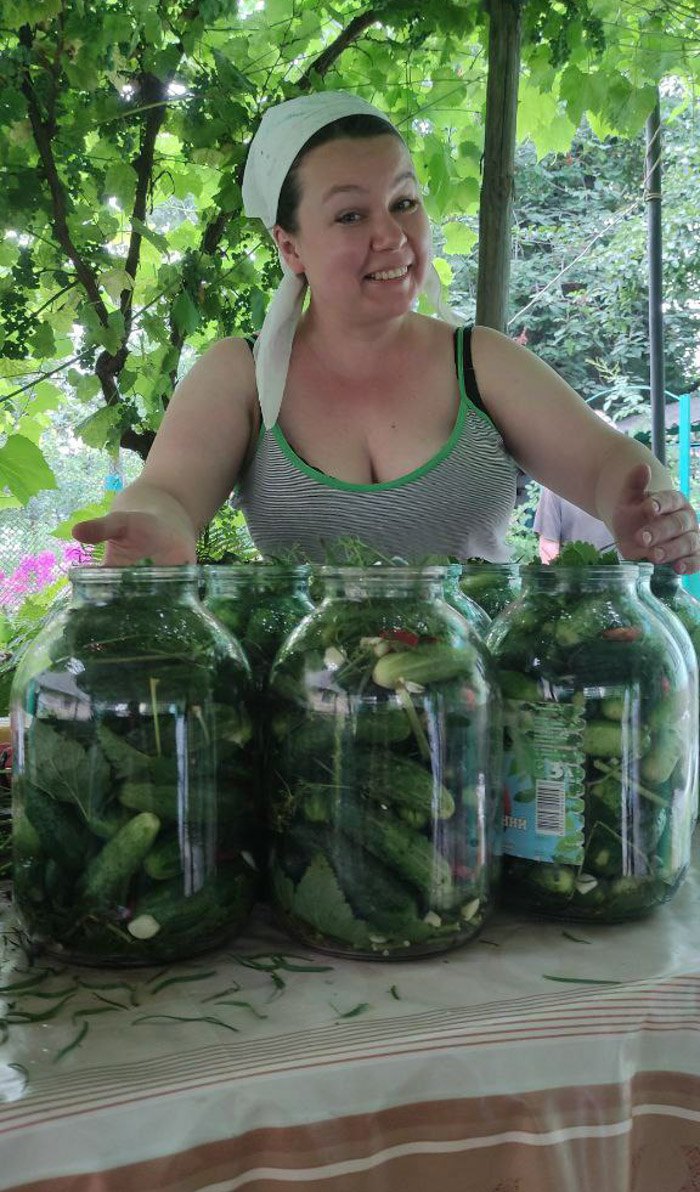
After all, we agreed that I would go alone. These were the last days of green corridors. But to get to the point of departure, it was necessary to pass russian checkpoints. They scoured people there, took their phones away. We heard that the russians shot people on the way. Sometimes, the russians warned that they would shoot. Sometimes they did not. We weren't sure about security, so I didn't go.
We told those russians who searched my grandmother’s house that we went to our apartment on Tarasivska street every day. I doubt they knew exactly where the street was. But we also said that we had to cross the railways near the Lisova Bucha bus stop. They stayed at a factory, not far away from there.
After a search of my granny’s house, we packed food and thermoses in our backpacks, I covered myself with a white towel, my mother covered herself too, and we went home. Dad walked first, in front of me so that if someone shot, he would be a target because he was a man. My mother usually walked behind me, but for some reason she walked in front of me that day.
“We heard gunfire, but somewhere far away. It happened all the time, we were used to it. Suddenly I heard a very loud shot, about fifty meters away. One of the three of us, most likely it was me, shouted, "GO DOWN!" It all happened in a few seconds. Mom had already fallen by then.”
The shot was so loud that it deafened me in one ear, my ears tingled all evening. I checked my ear for blood. There was no blood. I looked up and saw my dad lying and looking at me. Mom didn't move. He called to her, I understood that something was wrong, but I saw only her legs. I also started calling her, thinking that my mother was just hurt, but she did not respond. When I got up, I saw a bullet hole just between her eyebrows. That is, the russians saw us through binoculars and targeted us. They shot exactly where they aimed. I shouted, "Mom, mom!" - but dad ordered to lie on the ground again and hide behind mother’s body. My dad cried out for help. He shouted in russian that we were peaceful people, that we had no weapons. I seemed to be shouting something like “Look! you killed my mother!” But there was no reaction.
While we were lying, my dad told me to run back to my grandmother’s, to a neighbor, so that he could come with a wheelbarrow. Maybe he also thought that my mother was still alive, and we could help her. I ran, and I know the Russians saw me then.
When I ran to my grandmother, I told her that my mother was injured, although I was almost certain that she was dead. A neighbor took a wheelbarrow, and we went for her. When he saw the body, he understood everything. There was so much blood, she would not have survived. We hope she died quickly, in a moment.
We saw my dad at the factory gates, we saw that the russians were holding him at gunpoint. He shouted something at us. At first, I wanted to come up, but our neighbor refused, because he was not sure what the russians had in mind. So, we went home.
“A neighbor told my granny that my mother had been killed. I could not do it.”
It was getting dark. Dad still didn’t come back. We had to take away mother’s body. It was decided that my grandmother’s husband, a veteran of the war in Afghanistan, would go to negotiate with the russians. But he has problems with health, his right side is almost paralyzed, he hardly walks. So, he went to the factory where the russians settled and tried to explain them who he was and what he wanted. They scoured him. It seems that the deputy commander spoke to him, asked if he knew Bandera, asked who my mother was for him, and asked if he drove a car.
Eventually, they gave grandpa a car. Obviously, it was a stolen car, there were other people’s documents. Two russian soldiers went to the scene with him. They helped put the body in the back seat and let him go home.
Meanwhile, my grandmother, me, and our neighbors did not know what to do. Because it was already dark, dad didn’t come back, we didn’t know what was going on. Then we saw a car. We hadn't seen cars on the go for a month. My grandfather came and brought the body.
We put my mother’s body under the shed in the yard. Grandma talked to her for about an hour and a half, shouting something at her. It started to rain. We cried all night.
And at eight o'clock in the morning my father returned.
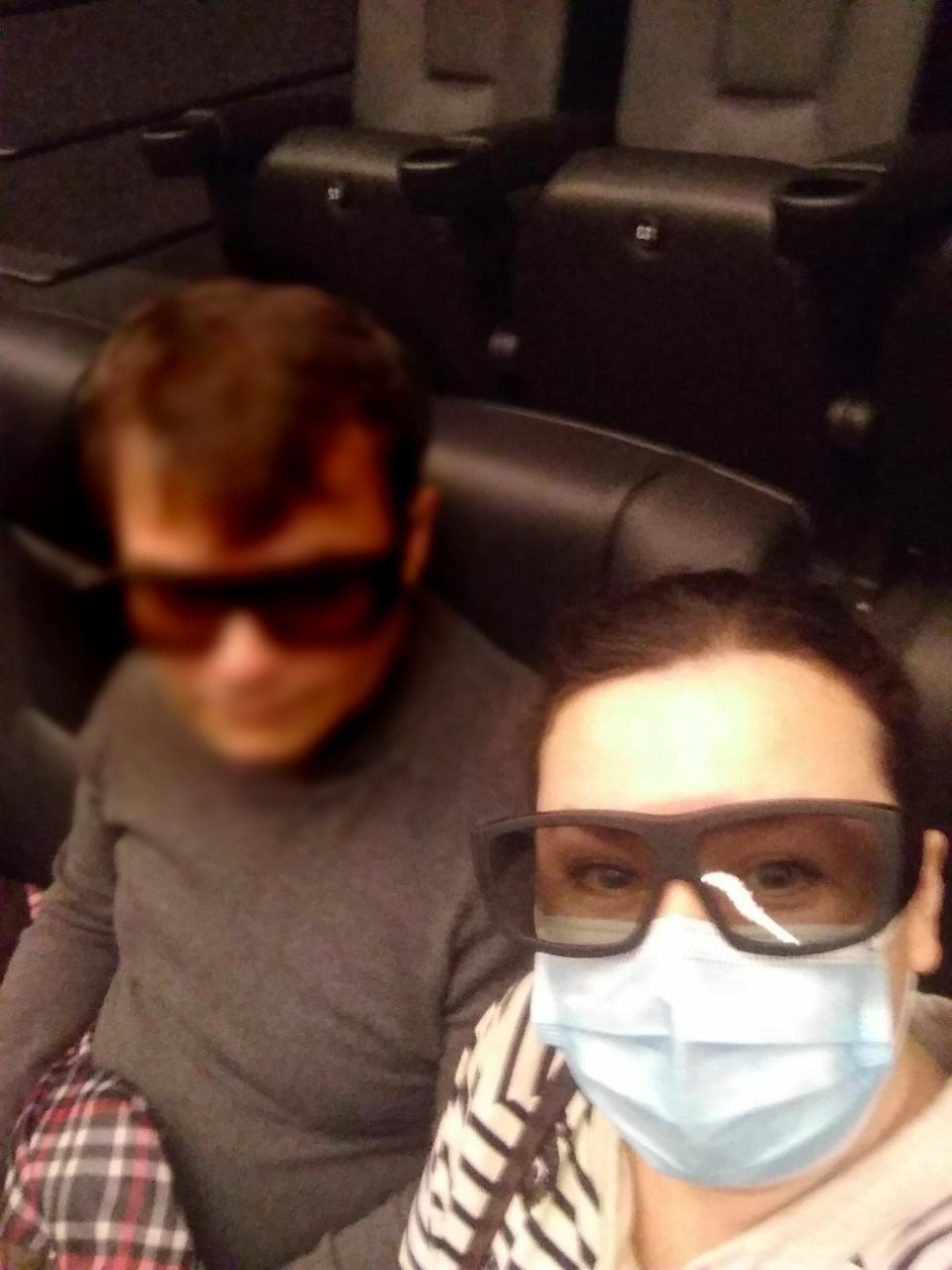
Dad
Immediately after the shot, while I was running to my grandmother, my father went to the factory. He understood that the russians had settled there and fired from there. He wanted to ask them for permission to pick up mom's body safely.
“Wait! Where are you going?” they shouted.
“I want you to allow me to pick up the body,” Dad said.
“Wait! Show your documents!”
Fifty meters from the factory fence, Dad got his passport out. They looked at it through binoculars. Then they asked to show what was in the backpack. There were thermoses with food and tea. He took it off, showed them everything. They watched through binoculars as Dad poured tea from a thermos on the ground. Then they started shouting at him to drink from the thermos. And this was hot tea, boiling water poured in half an hour ago. Dad drank.
Then he threw his backpack somewhere. The russians ordered him to undress. 24 March. It was snowing outside, it was cold, he was standing in the woods, undressing up to his underpants. They looked thoroughly at him through binoculars, looking for swastika tattoos. Then he got dressed back and went to the gate to speak. They opened the gate, looked at the passport again, gave it back. Dad asked again to pick up the body. In response, the russians interrogated him about the nationalists, asked some stupid questions, and tried to prove that he was a looter.
They asked:
- Here you are, as a civilian, how do you assess the situation?
“- Well, you conduct a liberation operation here. You "liberated" me from my wife and my daughter from her mother,” replied the father.
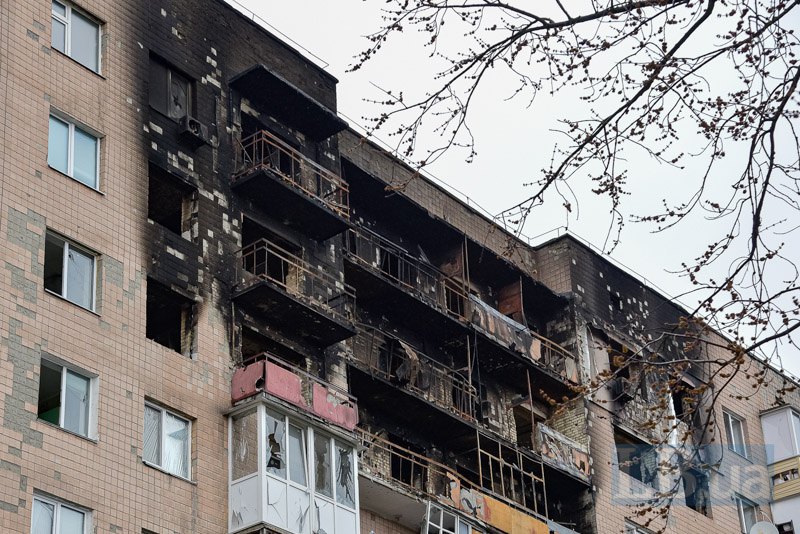
At that time, he heard someone reporting on the radio set that he saw a man with a wheelbarrow and a girl through binoculars. That is, they knew everything and tracked everything. It was my neighbor and me. Then my father shouted at us to come up, but we didn't come up. The russians ordered him to back up in the yard.
There, they put a sack on his head and tied his hands. They searched him again, and found a phone with buttons. The house of my grandmother was also searched that day, and the russians took away a SIM card from that phone. Then the military began to tell dad that he was a marauder, that he had text messages boasting about looted houses. He replied that it was not true because it was the phone of his wife, whom they had killed. They told him that there were warning shots, 20-30 meters above their heads. Then they started to prove that they didn't shoot at all. Do you understand? First, they say something about the warnings, and then that they didn't shoot at all?
After all, it was already night, it was dark. An infantry fighting vehicle arrived and took my dad away. Then he was transferred to another car, where he rode for another 15 minutes, with his hands tied and a sack on his head all the time.
“Some of them simply ordered the dad to hold still. Some cursed the war. Some called their commander an idiot.”
Dad was dropped off, but they didn't say where it was. They told him to go a hundred meters ahead, and he would be released there. Most likely, there was a checkpoint ahead and he could have been killed there. Dad walked and went into a fence. He dropped the sack from his head and decided not to go any further. He did not immediately realize that he was in the centre of Bucha, near Novus. He thought he was dropped off somewhere in Vorzel. Then he climbed into a broken car, cut the rope on his hands. He found a dog and thought that the dog would take him to people. He went into a yard, where there were local alcoholics. They showed him the way, but he got lost at night. Eventually, he returned to them and spent the night there.
At six in the morning, he went home and at eight he returned.
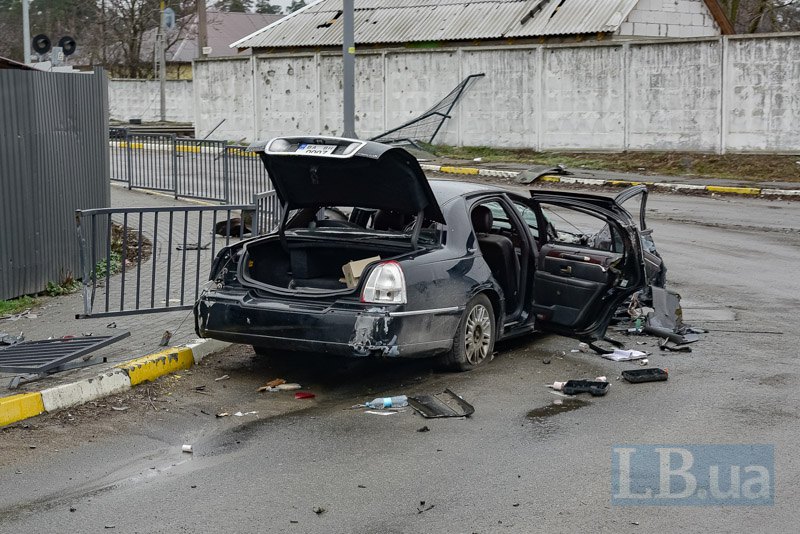
Funeral
Not many people attended the funeral. Grandma washed my mother. We found some things in her pockets, a notebook, a pen. Dad dug a grave. Of course, we didn't have a coffin. Neighbors helped put her on the ground. Since there were few people left on the street, I was surprised that still some people came. There were about 10-15 people.
We buried my mother without a ritual service, without priests. One neighbor, not a priest himself, but a parishioner of the church, a believer, simply recited prayers. That's all.
We took photos for the investigation. We are determined to have the investigation. My mother wanted to be cremated and her ashes scattered somewhere in a beautiful place. She had such romantic thoughts. We want to fulfill her wishes, but before that there must be an examination and appropriate conclusions must be drawn. I have already called the police and described the situation to them. They wrote down my address, my grandmother's address, and my phone number.
In Bucha, we were afraid to talk about my mother's death over the phone because we thought our relatives would want to come here. And this was wrong and impossible. Besides, the russians knew who we were, they knew they had killed my mother. We were afraid that they were listening in on the conversations, and if we told anyone on the phone, they would come to us with searches and take away the phones.
So, my father went to his parents to personally report his mother's death.
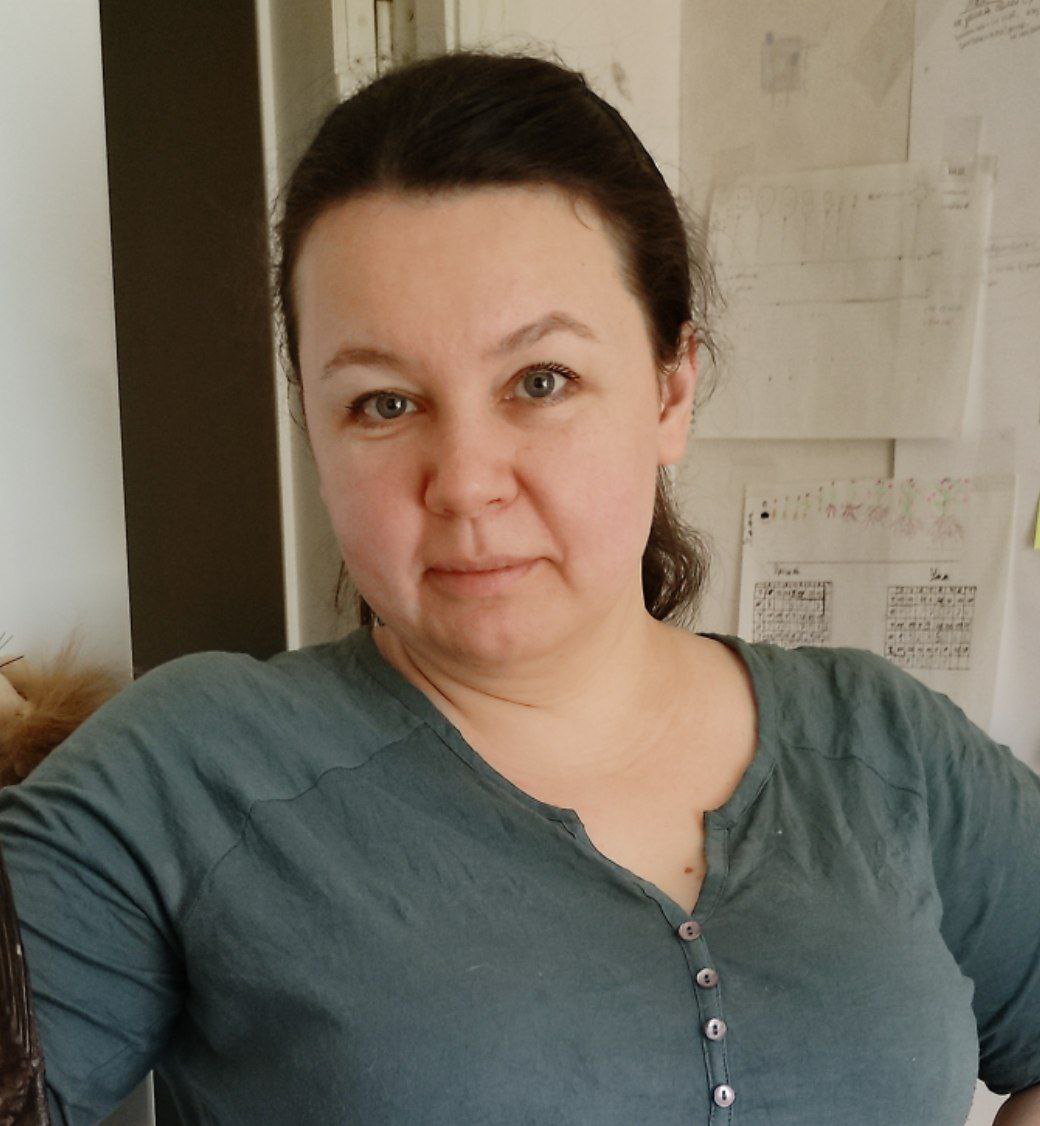
Departure
The next days we lived with my grandmother and did not go to the apartment. But on 1 April, our neighbor in the apartment, who fed dogs in the area, saw that a car with a red cross was driving on the Varshavske highway. It stopped, and volunteers asked if there was anyone willing to evacuate. He said there were some people, but they needed to get packed. They gave the phone number and said they would call in the evening.
The next day, news began to spread that the russians had retreated. Then, for the first time in eight days, we went to our cats and fed them. A neighbor called us, said that he had decided and left his apartment, he gave us the phone number of the volunteers. There was an opportunity to evacuate. We contacted the volunteers and gave them our address. We took our cats, collected things. I packed well, took my clothes, and an album with photos, which my mother packed on the first day. And then we waited for the volunteers and left.
We drove through the center of Bucha. We knew that on the day after they killed my mother, the russians killed several more people near that railroad tracks crossing. On the day we left Bucha, we were told that the body of a man who was also shot dead by the russians right on the street, was lying near our apartment building. No one went to pick him up because they were afraid. Locals buried other people in the street behind the dumps. Because there are many old people left who were not evacuated. They died without medicine. We knew that many people had disappeared, that there were many bodies on the road by which people went on evacuation. Those who managed to evacuate, told us about it. It was obvious that this was possible in the besieged city.
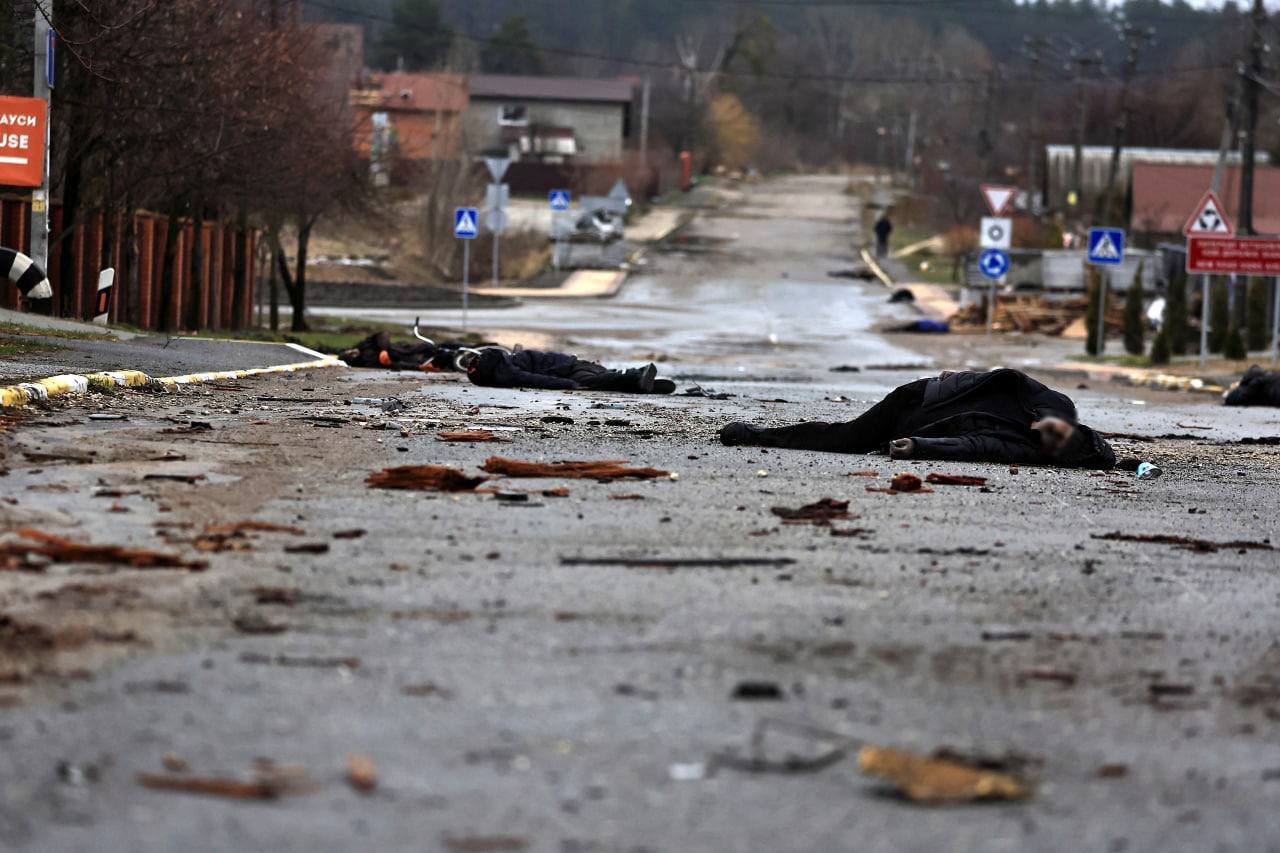
We saw the main damage. Central streets, buildings, shops – all destroyed. Roads were lumbered and blocked with piles. Houses stood burned down. Windows smashed. I know Bucha, and it seemed unreal to me, as if from a video game about the apocalypse.
Then we drove to Irpin. I saw this area from the windows of my house, I saw fires there. Irpin was on fire every day. One day I counted ten pillars of smoke. I understood what was there and was not shocked.
We were so happy to be at the Ukrainian checkpoints. We were searched only at the checkpoint at Akademmistechko, and I told the police that it was so nice to be searched by our people. The policeman apologized for having to do so. But I, on the contrary, was really glad. It was really for security, and it was done by people you trusted. In Kyiv, we drove to my boyfriend's family, and now I'm just happy to see the delights of civilization, light, shops.
During the evacuation, I was most impressed by the bridge near Romanivka. People who were evacuated that way left their cars there. They all stood there gutted. When I crossed the bridge, I stood for a moment and just stared in shock at the greatness of this chaos. Earlier, when there was intense shelling in Bucha, I decided to look fear in the eye. Of course, I was afraid, everyone panicked a little. But I had seen rockets fly before, and I hoped I would never see them again.
I am going to return to Bucha when it is calm there. I stood in front of the bridge, looking at the town, trying to remember everything.
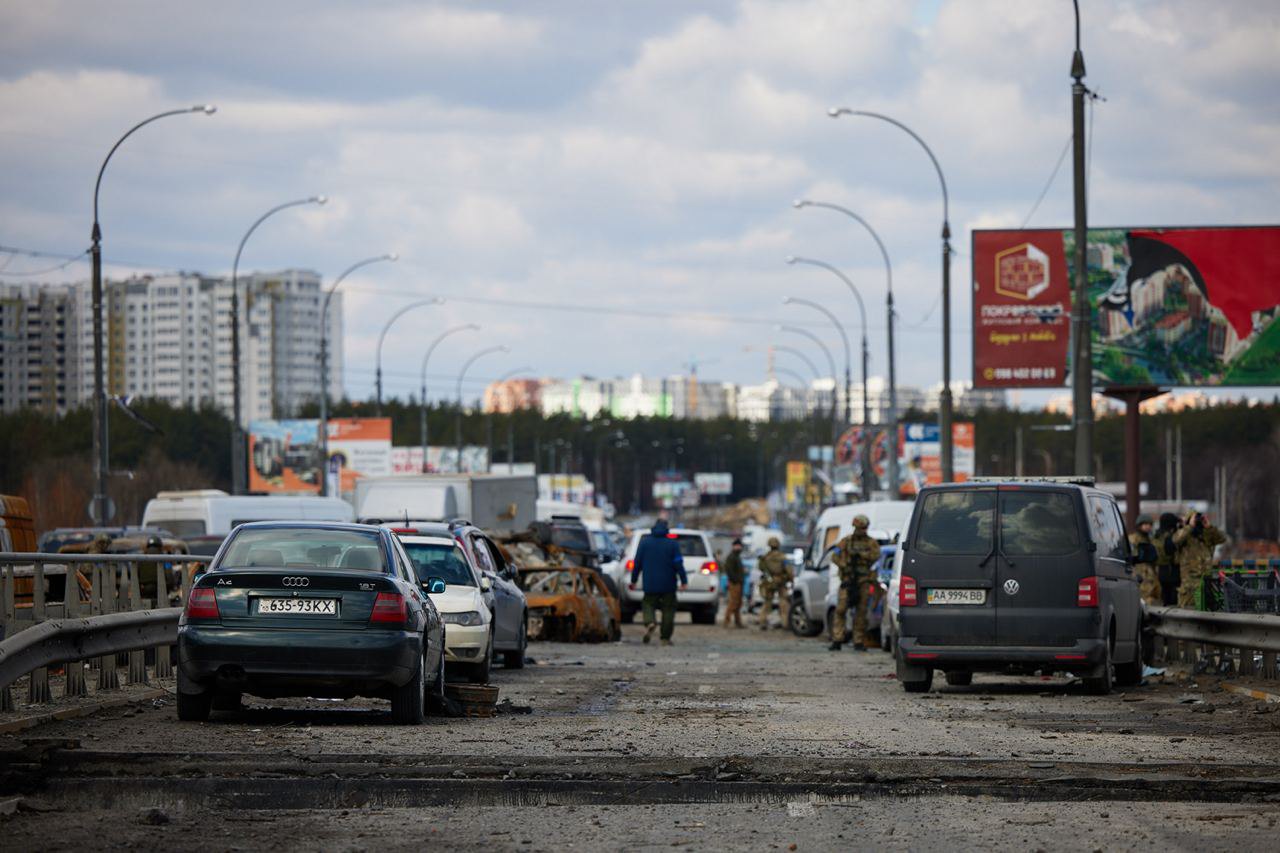
The material was published with the support of Women in the Media NGO.
